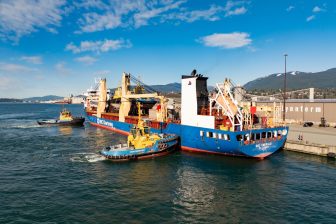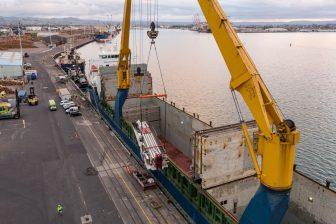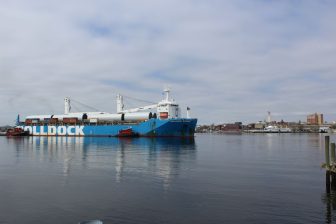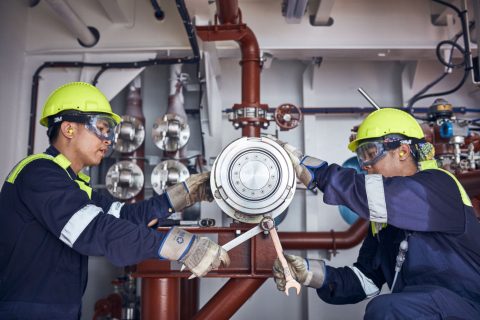
CMA CGM and Maersk tie up over shipping decarbonisation
CMA CGM and Maersk have taken a joint step towards shipping decarbonisation in full compliance with laws and regulations. Jumping to the top of the queue in shipping’s energy transition, both companies believe the joint action will expedite the process by learning from each other.
CMA CGM and Maersk have set a net-zero target for their shipping business, have identified scalable solutions that can create an impact in this decade, and have already individually taken ambitious paths on promoting decarbonization for shipping.
Both companies have taken their specific paths when it comes to their fleet. Maersk has opted for vessels that can be operated on bio/e-methanol. CMA CGM has been ordering LNG-propelled vessels, that can also be operated on bio/e-methane, the new green equivalent of current LNG, and has also placed orders for vessels that can be operated on bio/e-methanol.
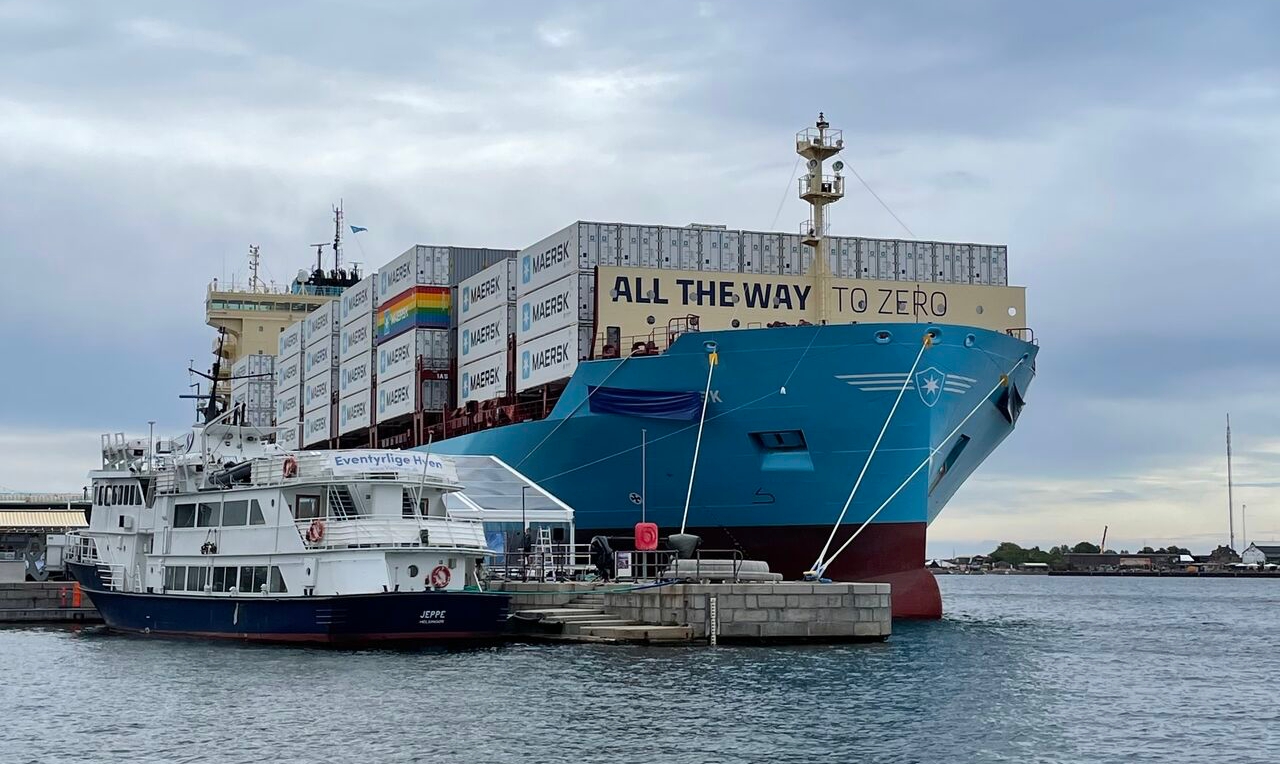
While these two fuel streams appear now as the most mature among existing solutions, both companies expect the future fuel mix of shipping will include other streams that should be developed in the coming years.
Joint search for future fuels
The shipping giants have decided to work together on developing the use of alternative greener fuels for container vessels. It is fair to say, that the move will lay down a marker for the rest of the shipping industry.
CMA CGM and Maersk pledged to develop high standards for alternative sustainable, green fuels – including the analysis of full lifecycle and related greenhouse gasses – and help to set the framework of mass production of green methane and green methanol.
Both also aim to develop and maintain standards for the operation of green methanol vessels with regard to safety and bunkering, as well as accelerating port readiness for bunkering and supply of bio/e-methanol at key ports around the world.
Additionally, the two companies will continue to jointly explore R&D on other components of the net zero solution as new alternative fuels, like ammonia, or innovation technology for their ships.
Advocating for shipping decarbonisation
Moreover, Maersk and CMA CGM both agree on the fundamental role of regulation in securing the decarbonization of the sector. Both companies warmly welcome the outcome of the recent Marine Environment Protection Committee of the International Maritime Organization during which the IMO’s 2023 Strategy for Reducing GHG Emissions from Ships was adopted, with reinforced targets to tackle harmful emissions.
Maersk and CMA CGM remain committed to jointly advocating for and encouraging IMO Member States to adopt ambitious measures in their pursuit of the highest attainable goals. Regional measures such as the EU Fit for 55 and the Inflation Reduction Act in the US are welcomed by both companies to help stimulate demand for green shipping solutions.
CMA CGM and Maersk affirm their readiness to collaboratively engage with regulatory stakeholders in establishing a robust and sustainable international regulatory GHG framework and invite other international shipping lines who so wish to join them in this cooperation with the regulatory institutions. Such a framework is in both companies’ perspective a prerequisite to reducing carbon emissions for the shipping industry and securing a level-playing field for a global business environment.
You just read one of our premium articles free of charge
Register now to keep reading premium articles.


